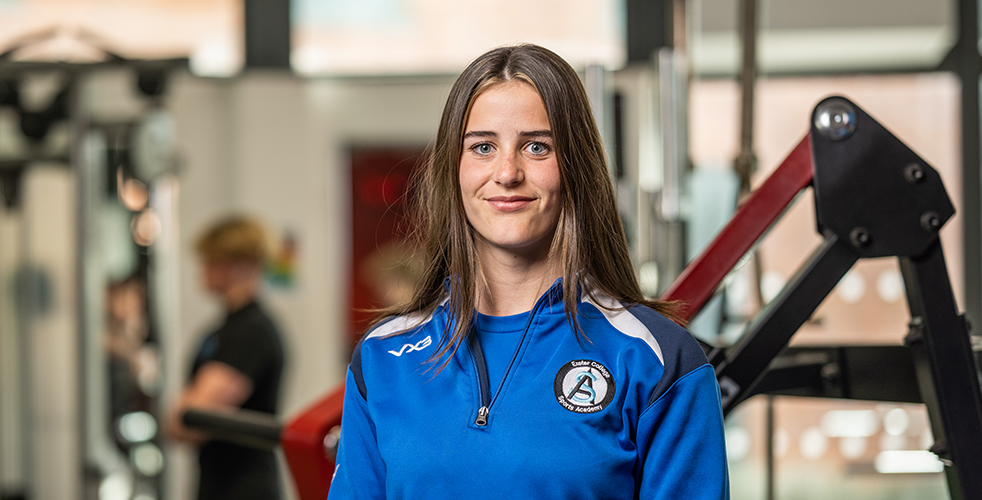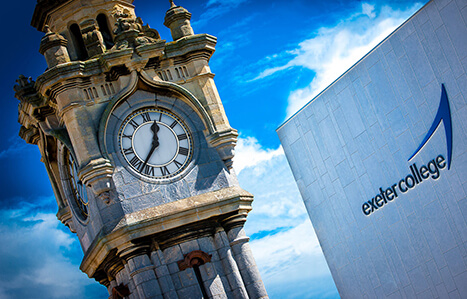Geology
Geology is a subject that brings Science and Physical Geography together to help us understand one of the most interesting subjects imaginable – the Earth we live on – and how it formed and developed over billions of years.
Course Information
- Course Type School Leaver
- Subject Area Science
- Qualification A Level 🧩
- Study Mode: Full Time
- Course Level Level 3
- Location Maths and Science Centre
- Course Length 2 years
- Overview
-
This course can be combined with other A Level/BTEC Certificate courses to make a full programme.
You will study an AS Level in the first year of this course.
Geology is the study of the Earth – how it works and its 4.5 billion-year history. Geologists study some of society’s most important problems, such as energy, water, and mineral resources; the environment; climate change; and natural hazards like landslides, volcanoes, earthquakes, and floods. This subject is particularly useful for students who are interested in, or may wish to follow a career linked with, the physical environment. You will get the opportunity to study one of the most exciting subjects imaginable – the earth we live on.
This course is ideal if you enjoy applying scientific knowledge to the study of our planet. Geology involves elements of Physics, Chemistry and Biology and appeals to students who like a practical and problem solving approach to support rigorous learning.You will be taught through lectures, practical work, case studies and small group work and have access to our fully-equipped geology laboratory.
Examination which will include the assessment of your knowledge of practical procedures. In addition to the written papers, you will need to demonstrate your practical competency throughout the course using a range of scientific and fieldwork techniques. This will lead to a Practical Endorsement alongside your A Level.
What topics will I study?
A Level in Geology provides a comprehensive coverage of the knowledge and understanding required for the study of the earth, its structures, evolution and dynamics. The core aspects include:
- Elements, minerals, rocks and natural resources
- Surface and internal processes
- Time and change
- Earth structure and global tectonics
- Rock forming processes
- Rock deformation
- Past life and past climates
- Earth materials and natural resources.
There are five themes which integrate and develop the knowledge, understanding and skills acquired in the core aspects. These include:
- Geohazards
- Geological map applications
- Quaternary geology
- Geological evolution of Britain and of the lithosphere
- Geology of the lithosphere
You will:
- Learn about the formation and structure of our Earth
- Study earthquakes and volcanoes and the hazards they can produce
- Consider the evolution of life and climate
- Understand how geology influences water supply, energy resources, construction materials and civil engineering
- Go on trips to experience geology in the field and to acquire essential practical skills
AS/A Level Geography, Environmental Studies and Biology would complement this subject well.
Future Steps: You could progress to a wide range of university courses in Geology and Geophysics. It also supports the physical aspects of a Geography degree. It can lead to employment in fields such as geology, seismology, geoengineering, or resource exploration.
- Entry Requirements
-
You will need eight GCSEs at grade 4 or above, including English Language, Maths and two Sciences.
- Facilities
-
You will have access a geology-specific lab with a wide range of rock samples and testing equipment and a Learning Resource Centre (LRC). You will have access to new fully equipped laboratories and PCs as well as access to a Learning Resource Centre.
- Additional Costs
-
There are some costs of materials and resources.
-
Have a question?
If you have questions or would like to speak to someone, our team of Customer Service Advisers can help answer your questions or direct your enquiry to the correct team.
Speak to us today on 01392 400500 or send us a message using our contact form: www.exe-coll.ac.uk/contact. -
Ready to find out more?
Why not come along to one of our open events, a chance to explore our facilities, ask questions about our courses and find out more about being a student at Exeter College. Visit our open events page to find out more today.



What our students think?
“I study PE, Biology and Psychology A Levels and find they link together nicely. I chose my subjects by thinking about what I enjoy the most and what could help lead to a career in Sports, as that is my main interest.” Read more >
“Maths can help you build your confidence to try more things, as it’s really rewarding when you get the right answers and figure things out by yourself.” Read more >
“Physics is my favourite subject and I particularly enjoy atomic physics. There is a helpful link between Physics and Maths, which is very interesting and lots of cross over, for example, when studying kinematics.” Read more >
You may also like View all Level 3 Courses View all Science Courses
-

Space Science – Extend Option
- Level: Level 3
-

Human Biology
- Level: Level 3
- Duration: 2 years
-

Meteorology and Weather Forecasting – Extend Option
- Level: Level 3
